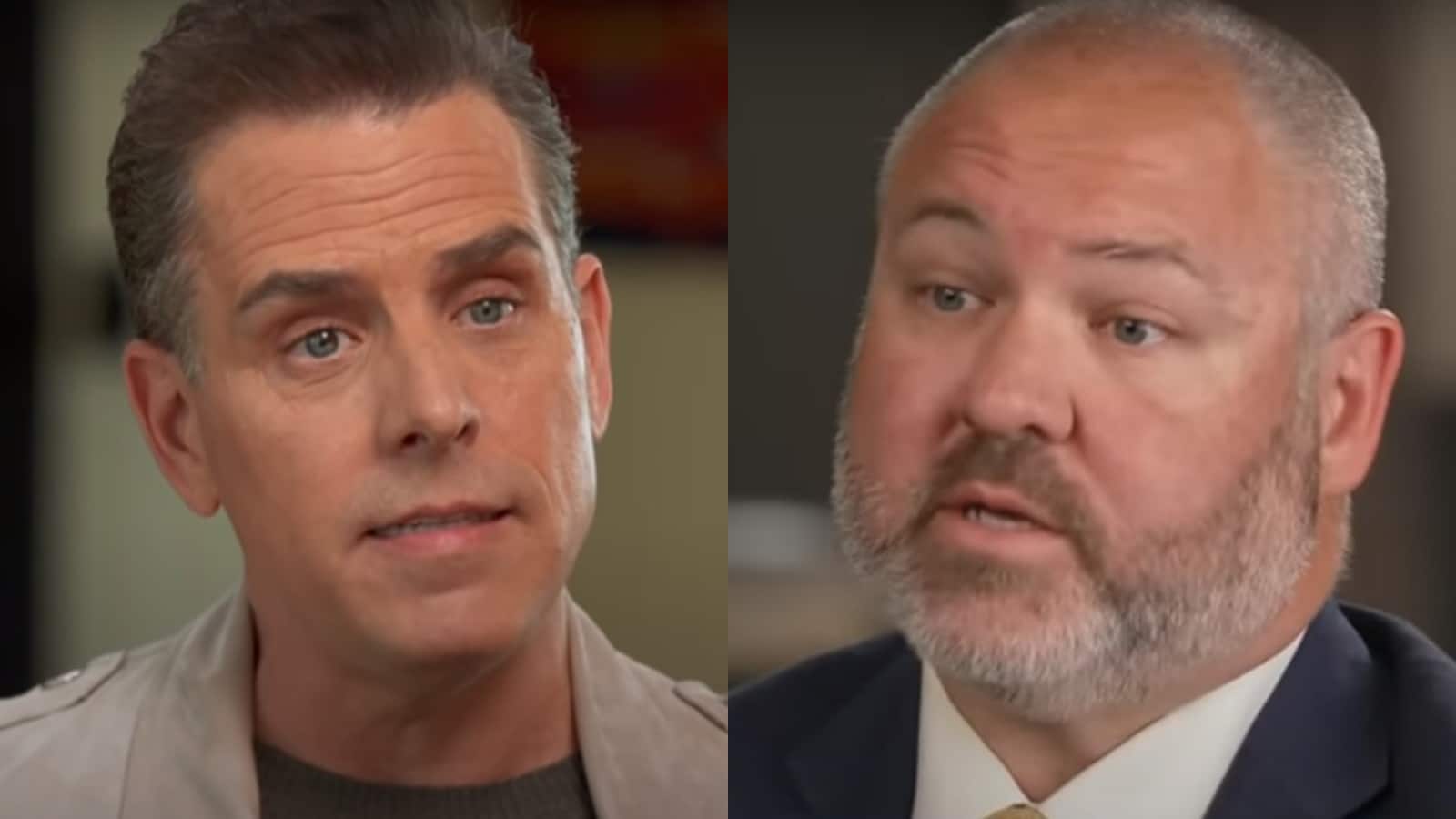OPINION: This article may contain commentary which reflects the author's opinion.
The IRS whistleblower who claims that the Department of Justice interfered with the IRS investigation into Hunter Biden has broken his silence and what he had to say could be devastating for President Joe Biden.
Gary Shapley, who has been employed by the IRS for 14 years, spoke to CBS News on Wednesday where he said that federal prosecutors were giving special treatment to the president’s son.
“When I took control of this particular investigation, I immediately saw it was way outside the norm of what I’ve experienced in the past,” he said.
And he said he was frustrated with the Delaware U.S. attorney’s office’s progress in the case.
“There were multiple steps that were slow-walked — were just completely not done — at the direction of the Department of Justice,” the whistleblower said.
“These deviations from the process,” he said, “seemed to always benefit the subject.”
“It just got to that point where that switch was turned on. And I just couldn’t silence my conscience anymore,” he said.
CBS News reported.
The existence of a whistleblower inside the Hunter Biden probe became known last month after one of Shapley’s attorneys, Mark Lytle, wrote to Congress seeking legal protections for his client, who was maintaining his anonymity at the time. Without those protections, Shapley said he can’t share anything about a taxpayer investigation—including the identity of the subject— without breaking tax secrecy laws.
Shapley is scheduled to appear before members of the House Ways and Means Committee on Friday, but his testimony will not be open to the public.
CBS News obtained a letter Shapley’s attorneys sent last week to the Office of the Special Counsel, a federal agency dedicated to assisting government whistleblowers. The letter alleges “irregularities” in the Department of Justice’s handling of the case,and cites a “charged meeting” Shapley’s team had with Justice Department prosecutors last October. According to the letter, following that meeting, Shapley’s team was effectively excluded from the investigation. Shapley would not say if he made prosecutors aware of his concerns but did acknowledge the incident prompted him to blow the whistle.
This month the FBI has blown off a subpoena issued by a committee in the Republican-led House in regard to allegations that, as vice president, Joe Biden took bribes.
The subpoena was sent by House Oversight Committee Chairman James Comer (R-Ky.), and it requests a file on an informant who allegedly supplied the information.
On May 3, Comer served a subpoena demanding that the FBI release a file by noon the following day along with a letter that was also sent to Attorney General Merrick Garland and FBI Director Christopher Wray.
However, the agency did not respond to the subpoena and instead sent a six-page letter outlining the reasons why they could not release the requested document.
“This letter responds to your subpoena, authorized on May 3, 2023, demanding the production of documents within one week. As this was your first communication with the FBI seeking this information, please know that the FBI is committed to beginning the constitutionally mandated accommodation process,” the response letter from FBI acting assistant director for congressional affairs Christopher Dunham, who went on to argue that informant reports have to be kept private in order to protect sources.
“The FBI is committed to working to provide the Committee information necessary for your legitimate oversight interests, while also protecting executive branch confidentiality interests and law enforcement responsibilities. The FBI appreciates this opportunity to inform you of our confidentiality interests so that we can ‘seek optimal accommodation through a realistic evaluation of’ each other’s needs and ‘avoid the polarization of disputes.’ We are committed to working together through this process,” it added.
“Information from confidential human sources is unverified and, by definition, incomplete,” Dunham continued.
“As is clear from the name itself, confidentiality is definitional to the FBI’s Confidential Human Source program,” Dunham added. “Confidential human sources often provide information to the FBI at great risk to themselves and their loved ones. The information they provide also can create significant risks to others who may be referenced in their reporting.”
